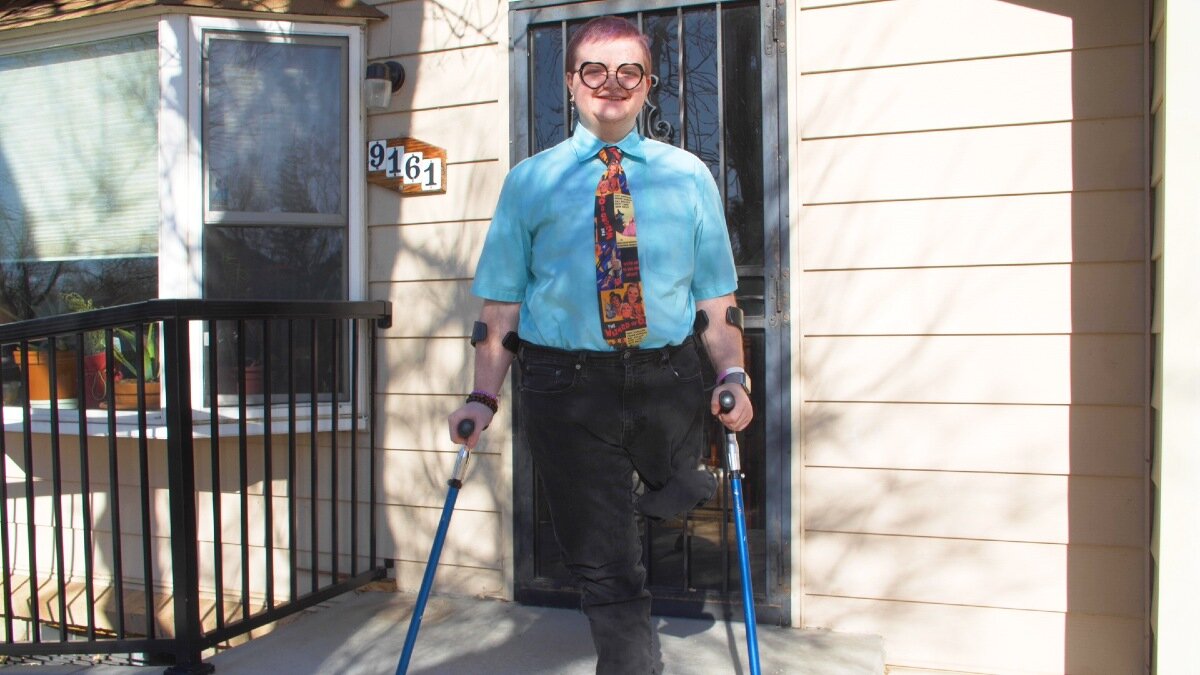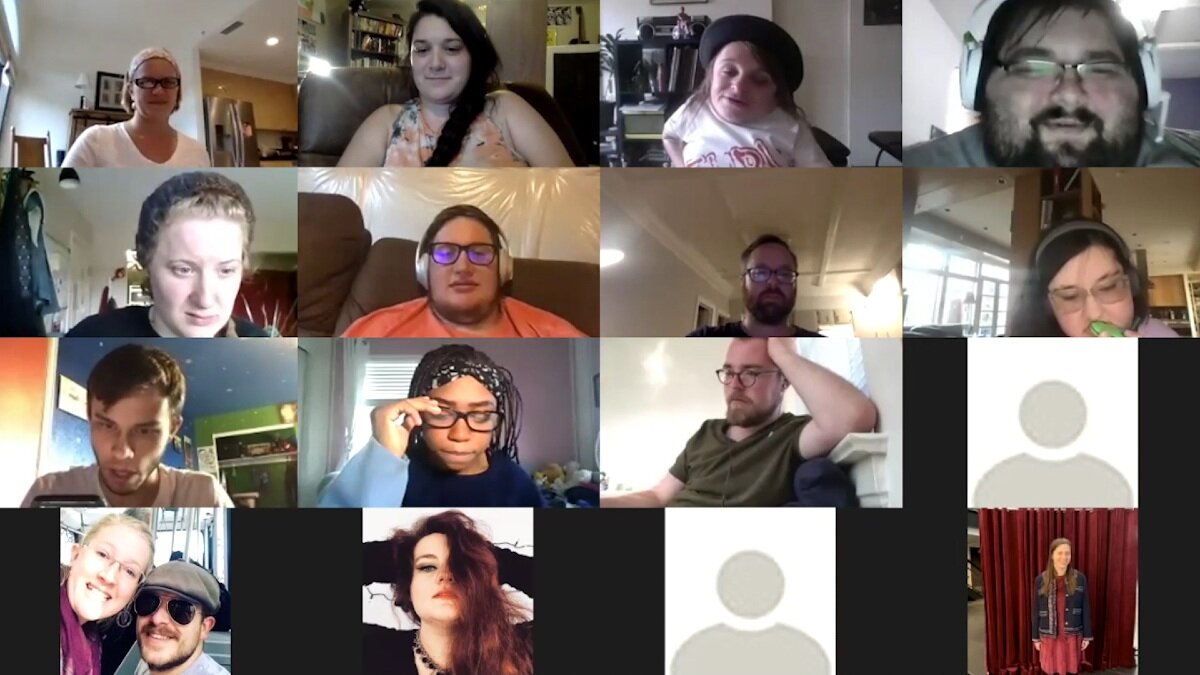An inclusive theater company adapts to the pandemic

DENVER — “It really does feel like a family, the name fits very well,” says Apollo Blue, an actor and writer with the Phamaly Theater Company based in Denver. “They’re always welcoming, kind.”
The Phamaly theater company was founded in 1989, originally named for “Physically Handicapped Amateur Musical Actors League,” and now just goes by Phamaly Theater Company. The organization puts on theatrical productions featuring artists with disabilities of all kinds. They write, act, direct, and more.
“Phamaly theater company is a creative home where artists with disabilities get to feel the fullness of their humanity, and not be marginalized or judged” says Sheila Ivy Traister, a director and actor with the company.

Sheila’s disabilities came later in life, following multiple car accidents and a horrible fall, leading to a traumatic brain injury, visual challenges, and seizures. “I was a fan of the program, and then when I went through my personal challenges [I thought] this might be a wonderful playground for me, with people who would understand what I was going through.”
Apollo Blue has been with Phamaly for three years now. He’s an amputee, a three-time cancer survivor, and has also been diagnosed with ADHD. “I plan to work with the theater company as long as I’m in Colorado, as long as they’ll have me,” he says. Apollo’s love of theater dates back to childhood, when his dad was a high school drama teacher.
Like many other aspects of our daily lives, Phamaly Theater Company has had to find ways to adapt with the COVID-19 pandemic. Before COVID-19, groups would get together to rehearse, sometimes daily. “Artists live, work, and breathe in very intimate environments,” says Sheila.
Now, most of the writing and rehearsal process is over Zoom. Their biggest shift is that instead of performing for audiences on a stage, members are rehearsing virtually, then getting together in small pods to film stories in person. The short films are released to an online audience.

Phamaly’s current project is called CoronaVox: Stories from the Front. Both Apollo and Shelia are involved. “So this is going to be like a documentary theater,” says Apollo.
Split into three pods, each pod will interview frontline workers and others affected by the COVID-19 virus. The groups will then take the interviews and create scripts for short plays. The plays will be filmed and released sometime in May. Depending on the future COVID-19 numbers, there may even be a theatrical element to CoronaVox, but “we’re not sure what it’s going to end up being,” says Apollo. “It’s growing as we continue.”
One thing that is certain, the members of Phamaly Theater Company are more than just members — they are a family. And they are breaking barriers with every show they put on.
“I think Phamaly absolutely helps get rid of those misconceptions people have about disabled people,” says Apollo. “I think Phamaly really shows people that people with disabilities are exactly the same. We may not be able to do it exactly the same way abled-people do it, but we can still do it.”
